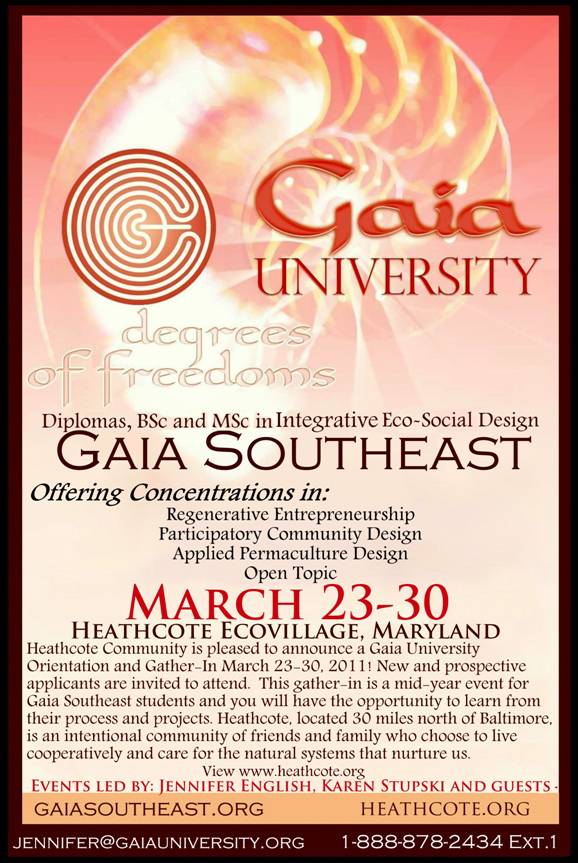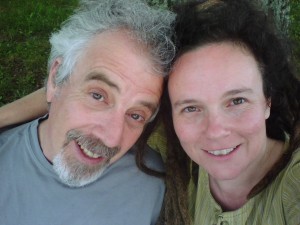Heathcote Community Hosts Baltimore Racial Justice Action
Forwarding press release—WT:
Achieving Racial Equity in Our Communities and Beyond
Have you heard the phrase “white privilege?” Why are people talking about it? What is it? Who has it? What can we do with it? How can we be sure that what we are trying to achieve will not maintain unequal patterns and disparities in outcomes? If you are interested in these topics but are afraid to explore them for fear of being misunderstood or “called out;” if you are struggling with your own baggage around these issues or want to increase your understanding of and effectiveness in diverse environments; if you’re working on grass-roots organizing, working with community organizations, just your own family, or want to organize your own anti-racism community, come join us. In this workshop we will view the video, Mirrors of Privilege: Making Whiteness Visible and engage in a facilitated, safe but frank discussion of contemporary race-related issues.
No matter where you are in your journey, BRJA provides a supportive, non-judgmental community of trainers/facilitators.
All are welcome to join us.
Suggested donation: $5 – $20.
Friday, May 13th
6:00 – 9:00 pm
HEATHCOTE COMMUNITY
21300 Heathcote Road
Freeland, MD 21053
Please join our Hippie Chick Diaries fan page on Facebook!
Subscribe to this blog's RSS feed
FREDERICK, MARYLAND POW-WOW SCHEDULED FOR May 2011: Frederick Food Bank TO Benefit From Pow-Wow
Forwarding a press release.—WT:
Hollister, NC- Pow-Wow, an American Indian owned and operated company, will sponsor the Frederick, Maryland American Indian Pow-Wow and Show at the E-Eventplex at the Frederick Fairgrounds (797 E. Patrick Street Frederick, MD 21705) on May 21-22, 2011. The Pow-Wow is an opportunity for the public to interact with American Indian dancers, singers, drummers, artists and craftspersons. This event is an attempt by Pow-Wow to educate the public about American Indians, past and present, through the arts.
The pow-wow is an opportunity for the public to interact with over 100 American Indian dancers in regalia (outfits), singers, drummers, artists, and crafts persons. Over $8,000 will be offered in dance and drum prizes, which will attract more than 100 dancers in full regalia from throughout the United States and Canada. At least Five (5) drums are expected.
On Saturday, gates will open at 11:00AM, and the event will kick off with a parade of nations (grand entry) at 12:00 noon. Over 50 Tribes will be represented at this year’s event, and they include: Haliwa-Saponi, Piscataway, Chickahominy, Rappahannock, Cherokee, Sioux, Iroquois, Lumbee, Hopi, Mattaponi, Nansemond, Choctaw, Navajo, and so many other Tribes and nations.
Hoop Dancer Pete Four Winds (Mohawk) and Juan Salinas of the Aztec Dancers will perform both days.
Fun activities for children include: Storytelling by Rose Powhatan, pony rides, face painting, tipi visit, bow ‘n’arrow shooting and a make it/take it table.
The public will be able to purchase some of the finest Native American crafts available. Items for sale include turquoise jewelry, moccasins, beadwork, rugs, books, paintings and dreamcatchers to name a few. Buffalo stew, fried bread, Indian corn soup and buffalo burgers are just a few of the Native American food items that will be on sale at the event.
Admission to the Pow-Wow is as follows: Friday-$10 for everyone Saturday –Sunday: Ages 3-12: $6:00 Ages 13-up: $10.00. The Frederick Food Bank will benefit from the Frederick Pow-Wow. A donation of a non-perishable food item at the gate on Saturday or Sunday will allow a person/family to receive $1 off each ticket purchased. This offer is not good with any other offer. Please call Ms. Sarah McAleavy, Coordinator of Food and Nutrition at Frederick Food Bank for more info concerning our food drive. Her number is (301) 600-6263.
For more information regarding the pow-wow, please call the show promoter at (252) 586-7913 or (252) 532-0821 or send e-mail to: powwow@vance.net This is not a web-site.
OUR WEB-SITE IS: http://www.myspace.com/powwow4life
TELEVISION AND PHOTO OPPORTUNITES
FREDERICK, MARYLAND AMERICAN INDIAN POW-WOW SCHEDULE-UPDATED
May 21, 2011
11:00AM-Gates Open/Vendor Sales
12 Noon-Grand Entry/Parade of Native American Dancers
1:00PM-Moccasin Blowout-Exhibition
1:00: Storyteller-Rose Powhatan
1:15: Hoop Dancer-Pete Four Winds
1:30-3:00PM-Native American Dancers-Exhibitions-1st round of contests
3:00-3:15: Storyteller-Rose Powhatan
3:15-3:30: Hoop Dancer-Pete Four Winds
3:30PM-4:00PM-Juan Salinas, Aztec Dancer
4:00PM-Moccasin Blowout Competition-1st Round
4:30PM-6:30PM-Native American Dancers/Contests/Exhibitions/Specials/honors-2nd round of contests
7:00PM-Gates Close
May 22, 2011
11:00AM-Gates Open/Vendor Sales
12 Noon-1:30PM-Grand Entry/Parade of Native American Dancers/Exhibitions
1:30PM-1:45PM-Storytelling: Rose Powhatan
1:45PM-2:00PM: Hoop Dancer-Pete Four Winds
2:00-3:30PM-Native American Dancers-Exhibitions-2nd round of contests
3:30PM-Juan Salinas-Aztec Dancer
3:50PM-Moccasin Blowout Competition-2nd Round
4:00PM-6:00PM-Native American Dancers/Contests/Exhibitions/Specials/honors-2nd round of contests
6:00PM-Announcementt of winners
6:00PM-Gates Close
Please join our Hippie Chick Diaries fan page on Facebook!
If You Missed Saturday’s Gaia U Open House, Here’s Your Second Chance!
Come to our Gaia University Open House!
March 5, 2011, 7:30 – 9:00 PM at Heathcote Community
Come learn about Gaia University, an institution for higher learning with a unique approach. The students (called associates) are able to earn accredited Bachelors & Masters degrees and Graduate Diplomas whilst being actively engaged in self and planetary transformation and ecosocial regeneration. The Open House will provide an overview of Gaia University’s action learning methodology and our programs in Integrative EcoSocial Design with concentrations in Applied Permaculture Design, Regenerative Entrepreneurship, Participatory Community Design, and Open Topic.
Heathcote is partnering with Gaia Southeast to host a Gaia Gather-In March 23-30, 2011. Prospective applicants may attend the whole gathering or audit individual days. Find out more at the Open House!!
Please RSVP by Mar. 4 by calling 410-357-9523 or email education@heathcote.org.
From Wren: I attended last Saturday’s Gaia U Open House. I continue to be amazed at the scope and effectiveness of Gaia U. It brings our alternative values into practice, while educating alternative-minded students in hands-on, exploratory, real world ways. It’s a great alternative to the conventional classroom! I hope you can make this Open House or connect with Gaia U through its website or other means! —WT
A Global Open Space Geared Towards Action
From Wren: The World Social Forum is a growing event that happens concurrently with The World Economic Forum. WSF intends to turn the tide of “neo-liberal globalization,” (free market capitalism, with slavery, child labor, imperialism and environmental injustice).
I just received this email reporting on the World Social Forum in Dakar, Senegal. Click here for extensive photo coverage.
C.T. Butler and I had planned to attend it and the preceding IndyMedia Convergence as consensus trainers, but our invitation was relatively last minute and funding didn’t happen in the short time. We’re expecting our friends to return in the next few days with exciting stories! Until then I share this, unedited:
—WT
From Sven Giegold—
Just like last year’s World Social Forum held in Belem (Brazil), the
Forum in Dakar took place under the impression of the deep crisis of
neoliberal globalization. Whereas the economy has recovered for some
time already in some regions of the world, it started to do so recently
in others. But all that cannot hide the existence of deep social,
economic and ecological problems. The WSF provided a meeting point for
a broad range of individuals originating in movements and civil society
who hope to overcome neoliberal globalization: Either by establishing
social and ecological regulations, for instance by implementing a
“Green New Deal”, or by breaking with capitalism in general. This range
of political alternatives characterized this WSF, just as the
alterglobalist movement in general. In the run up to Dakar, Gustave
Massiah (2011a & 2011b)* wrote a widely acknowledged book and published
12 theses on the alterglobalist movement.
Whereas the debate in Belem had been dominated by discussions over the
crisis of civilization and fundamental alternatives to globalized
capitalism, such as the concept of “buen vivir” (“good living”) this
was different in Dakar. This year, the agenda was dominated by the
peaceful revolutions in Egypt and Tunisia, and the particular African
context with its own topics. Already the impressive opening march made
clear that this would not be a forum of big overarching claims and
slogans. The organization committee succeeded in mobilizing a big
variety of social- and grassroots-movements from all over West Africa.
Caravans had been travelling across all neighbour countries, converging
to Dakar from different directions. On the one hand they provided cheap
transportation, on the other hand they called attention to the WSF. And
they did not come with red, green or any other banners, but with their
own concerns: land grabbing in order to fulfill the needs of the global
consuming class in times of increasing scarcity of arable land.
Protection of local seeds and local production from control of
multinational companies and agricultural subsidies. Sea grabbing by
industrial fishing on the cost of family-run fisheries.
Especially the strong African women’s movements were eye-catching,
regarding land use rights, fisheries as well as participation of women
in conflict resolution on the African continent. Finally, fortress
Europe with its inhuman “frontier protection” regime, was a big issue.
Senegalese students and others confronted European participants over
and over again: How is it possible that you are able to come here
without a visa, whereas we do not even have a chance of having one?
Global freedom of movement, as being part of global civil rights, was
claimed consistently. A Migration Forum adopted a “Charta of Migrants”
in the run up to the Forum (http://fsm2011.org/fr/charte-mondiale-des-
migrants ).
In short: new and old forms of colonialism were the decisive topics of
the WSF. Fortunately, there was no arrogant western critique or bashing
of African grassroots movements this time, in contrast to the 2007 WSF
in Nairobi. This was partly favoured by the less obvious appearance of
religious groups – either Christian or Muslim -, so that religious
intolerance, popular in some left currents, was less provoked. However,
the engagement of Catholic and Protestant development organizations can
be seen as positive in enabling numerous of their partner organizations
from the global South to participate in the WSF. The “German Protestant
Development Service” presented its study on EU-West African fisheries
cooperation, which massively affects the right on food of local
fishermen and their families along the coast. Left parties and labour
unions were not as visible as at Forums in Latin America and 2003 in
Mumbai/India. The only German union participating in the WSF was the
GEW. Big NGOs were present numerously, but did still not dominate the
Forum. The participation of the global alterglobalist movement mirrored
its regional spread on different continents as well. Whereas Europeans
and Latin Americans were very visible, alongside the in numbers
dominating Africans, there was very few Asian participation apart from
India. North American NGOs were under-represented in terms of numbers
as well.
Unlike in Latin America, no African government relates politically to
the alterglobalist movement. The revolutions in Tunisia and Egypt
therefore became the point of reference concerning political power of
the Forum. A dozen of Social Forums held in the Maghreb region had
helped to prepare change. Nevertheless, it would be an exaggeration to
see the fall of the two antidemocratic regimes as a success of the
alterglobalist movement. But a lot of organizations associated with the
process of World Social Forum want to travel to Tunisia around the 20th
of March. The European network of Attac is preparing a delegation in
cooperation with Attac Tunisia.
The new methodology applied at WSF proved to be of value: One day of
events dealing with African topics was followed by two days of events
self-organized by participating organisations. Opening and final events
were the only big and centrally organized events. Just like in the
years before, there were numerous events dealing with the same topics
because the organizers did not know each other in advance.
During the last one and a half days, 38 action assemblies were taking
place. Each of them dealing with one relevant topic. They turned out to
be a big success throughout. Resolved common actions were frequently
based on preparatory work of global networks, that were initiated at
WSF some years ago. Those networks – often running a little secretary,
mailing lists and regular phone conferences – are one of the biggest
success of past World Social Forums. And one of the most overlooked
ones at the same time. The World Social Forum can therefore be seen as
a Global Open Space gearing towards action.
As there was no systematic documentation of the results of the 38
action assemblies, I will only mention some of the numerous results.
They are politically only binding the participants, not the World
Social Forum as a whole. During a big event with 300 participants
dealing with land grabbing, a whole clutch of activities was agreed
upon and a declaration was adopted
(http://farmlandgrab.org/post/view/18159 ).
In doing so, it became obvious that the fight of traditional land use
rights, and with it the right to food, have to be won on a local level.
Whereas consumerism of the global rich, interests of multinational
companies, and powerful states are the cause of land grabbing in the
global South, local authorities and nation states from the global South
play a decisive role as well. They should defend peasant’s rights
instead of serving export agriculture in an often corrupt manner.
This was also demonstrated during the conference “land and sea
grabbing” which was organised by our Green group in the European
Parliament and took place at the edge of WSF. We have to take advantage
of the relevance of the very topic at WSF in order to impose pressure
upon illegitimate practices of western companies and EU trade policy,
which negatively affects small producers in the Global South. At the
same time, we have to strengthen fair trade and social movements
putting pressure on their governments.
The mobilization agenda for the upcoming months became obvious
throughout different meetings. G8 and G20 summits are going to take
place in France this year. Sarkozy wants to present himself as an
alterglobalist, failing with his agenda because of “other evil states”.
At the same time he is slowing down EU regulation processes regarding
the financial markets and the introduction of a European financial
transaction tax. It seems to be clear that French movements will not
let pass this obvious cheap strategy. The action assembly dealing with
G8/G20 adopted a corresponding resolution (http://gruenlink.de/54 ). An
organization committee with networks all over Europe has been created
in France. A strong mobilization towards Deauville in March (21st-22nd)
and Cannes in autumn (31st October until 5th of November) can be
expected. And there will be another preparatory meeting, taking place
on the 26th and 27th of March in Paris. Withstanding strong existing
tensions between NGOs and social movements relating to the topic of
climate protection, seems to be possible.
Furthermore, a lot of movements are heading to South Africa where the
next World Climate Conference (COP-17) is going to take place from 28th
of November until 9th of December in Durban. Even more attention is
given to the Rio-+20-Earth Summit which is going to be held from 14th
until 16th of May 2012. Realisation of a “People’s summit” as parallel
event for civil society is planned in Rio. It is a politically
interesting coincidence that both conferences dealing with climate
protection and biodiversity are going to be held in booming countries.
Both governments emerged from social movements. At the same time they
did not cover themselves in glory regarding ecological policy. How to
fight against ecological and social crisis with a common economic
strategy is going to be the essential subject. All in all there will be
a chain of big mobilizations for the alterglobalist movement:
Deauville, Cannes, Durban, Rio.
Unfortunately, the Forum suffered a lot from organizational problems.
The presidency of the university had changed recently and the new
president did not see himself bound to former agreements. As a
consequence, the WSF had to be held in addition to the regular
university schedule, which led to double usages of rooms. It lasted
quite a long time until tents were built up. But even then, changes of
rooms were not announced sufficiently. As a result, many events, that
had been carefully planned in advance had to be cancelled. Small
organizations were affected in the first place.
Nevertheless, all those problems could still not destroy value and
success of the Forum. The International Council of the World Social
Forum, who met in the aftermath of the Forum, accordingly rated it as a
success. Globally successful networks and their activities demonstrate
the necessity and benefit of the WSF. Anyhow, the Forum is neither
running out of topics, nor repeating contents without progress, as
often claimed. World Social Forums are developing regionally as well as
thematically. Even if it is true that there is still no – and will not
be an – overarching, common theory of social movements and independent
civil society. The discourse of an alleged exhaustion is based on a
wrong desire of unity and one big, unifying “-ism”. But the lack of
such an ideology must not necessarily be seen as weakness – it rather
proves the democratic strength of the alterglobalist movement.
In the Council, it was rightly criticised that a state representative -
Bolivian President Evo Morales – was given the honour to open the
global Forum of civil society. This had not been agreed on with the
Council in advance. Furthermore, there are accusations that the
Moroccan and Algerian government co-financed the WSF in return for
political concession on the Western Sahara issue. These allegations
have to clarified fully. Finally, there were critical inquiries by
Indian and Brazilian participants regarding the process of European
Social Forum. As a matter of fact, the process of European Social Forum
is in trouble for years. In contrast to the World Social Forum, linking
up big NGOs, labour unions and radical social movements, failed so far.
Almost all big organisations have left the process, which is now led by
a small and insufficiently legitimised preparatory committee. It is a
good sign, that has now been noted and is criticized from the Global
South.
* Gustave Massiah (2011a): Une stratégie alterglobaliste, Paris: La
Découverte.
Gustave Massiah (2011b): Les douze hypothèses d?une stratégie
alterglobaliste, http://www.cetri.be/spip.php?article2060&lang=fr
You can find my 150 pictures taken at World Social Forum here.
———————————————
Sven Giegold, MdEP
http://www.sven-giegold.de * facebook/twitter: sven_giegold
__________
Please join our Hippie Chick Diaries fan page on Facebook!
Gaia University Open House: Feb. 19, 2011, 1-3 PM at Heathcote Community
Come to our Gaia University’s Open House!
Feb. 19, 2011, 1-3 PM at Heathcote Community
Learn about Gaia University, an institution for higher learning with a unique approach. The students (called associates) are able to earn accredited Bachelors & Masters degrees and Graduate Diplomas whilst being actively engaged in self and planetary transformation and ecosocial regeneration. The Open House will provide an overview of Gaia University’s action learning methodology and our programs in Integrative EcoSocial Design and Open Topic. Heathcote is partnering with Gaia Southeast to host a Gaia Gather-In March 23-30, 2011.
Please RSVP by Feb. 16 by calling 410-357-9523
or email education@heathcote.org
Note from Wren: Karen Stupski and I attended some of the first organizational gatherings of Gaia University at The Farm in Tennessee several years ago. I was electrified at the bold notion that our alternative culture could create higher education models that reflect our values and priorities. This is where I first encountered Spiral Dynamics and Action Learning. Gaia U founders Liora Adler and Andy Langford brought a clarity of vision that has propelled ideas into the realities of several learning pathways.
It’s been exciting to watch this university without walls attract more and more students and more sites each year. Whether or not you are planning to enroll, consider this Open House as a way to learn about alternatives you can promote to the next generation, or even people seeking a career change. Imagine majoring in Permaculture or Facilitation instead of Business…—WT
Please join our Hippie Chick Diaries fan page on Facebook!
STILL A Revolutionary Decision-Making Process
From Wren: I’m reproducing this article from several years ago, with C.T.’s permission. C.T. Butler and I, along with a forming collective of facilitators, have been putting new language to the many paradigm shifts that help practitioners of consensus decision-making succeed in conducting meetings that reflect the egalitarian, non-violent, post-privilege world in which we want to live. This article, nearly twenty years old, shows that, although we’re bringing clarity and new language to the subtle concepts that help consensus succeed, they’re not all new ideas. —WT
If you were asked to pick one thing that might bring about major social, political, and economic change in this country, what would you pick? Most people would pick their favorite issue; be it civil rights, demilitarization, environmental sustainability, or whatever. Some people would choose a system of values to replace the capitalism system such as socialism or the Ten Key Values of the Greens. But few people would even think of changing group dynamics (the way people treat each other when interacting with one another in a group); or specifically, the process they use when making decisions.
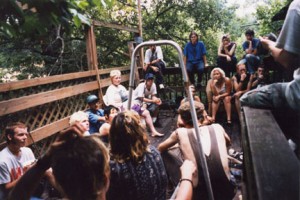 Process is the key to revolutionary change. This is not a new message. Visionaries have long pointed to this but it is a hard lesson to learn. As recently as the 70s, feminists clearly defined the lack of an alternative process for decisionmaking and group interaction as the single most important obstacle in the way of real change, both within progressive organizations and for society at large. Despite progress on many issues of concern to progressive-minded people, very little has changed in the way people treat each other, either locally or globally, and almost nothing has changed about who makes the decisions. The values of competition, which allow us to accept the idea that somebody has to lose; the structure of hierarchy, which, by definition, creates power elites; and the techniques of domination and control, which dehumanizes and alienates all parties affected by their use, are the standards of group interaction with which we were all conditioned. There are but a few models in our society which offer an alternative.
Process is the key to revolutionary change. This is not a new message. Visionaries have long pointed to this but it is a hard lesson to learn. As recently as the 70s, feminists clearly defined the lack of an alternative process for decisionmaking and group interaction as the single most important obstacle in the way of real change, both within progressive organizations and for society at large. Despite progress on many issues of concern to progressive-minded people, very little has changed in the way people treat each other, either locally or globally, and almost nothing has changed about who makes the decisions. The values of competition, which allow us to accept the idea that somebody has to lose; the structure of hierarchy, which, by definition, creates power elites; and the techniques of domination and control, which dehumanizes and alienates all parties affected by their use, are the standards of group interaction with which we were all conditioned. There are but a few models in our society which offer an alternative.
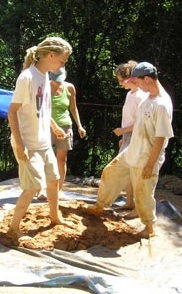 All groups, no matter what their mission or political philosophy, use some form of process to accomplish their work. Almost all groups, no matter where they fall on the social, political, and economic spectrum of society, have a hierarchical structure, accept competition as “natural”, acceptable, and even desirable, and put a good deal of effort into maintaining control of their members. It is telling that in our society, there are opposing groups, with very different perspectives and values, which have identical structures and techniques for interaction and decisionmaking. If you played a theater game in which both groups wore the same costumes and masks and spoke in gibberish rather than words, a spectator would not be able to tell them apart.
All groups, no matter what their mission or political philosophy, use some form of process to accomplish their work. Almost all groups, no matter where they fall on the social, political, and economic spectrum of society, have a hierarchical structure, accept competition as “natural”, acceptable, and even desirable, and put a good deal of effort into maintaining control of their members. It is telling that in our society, there are opposing groups, with very different perspectives and values, which have identical structures and techniques for interaction and decisionmaking. If you played a theater game in which both groups wore the same costumes and masks and spoke in gibberish rather than words, a spectator would not be able to tell them apart.
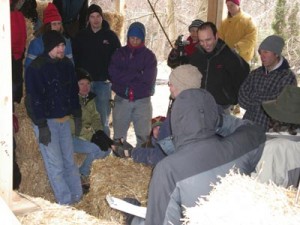 So what would an alternative revolutionary decisionmaking process look like, you ask? To begin with, a fundamental shift from competition to cooperation. This does not mean to do away with competition. Ask any team coach what the key to victory is and you will be told “cooperation within the team”. The fundamental shift is the use of competition not to win, which is just a polite way of saying to dominate, to beat, to destroy, to kill the opposition; but rather, to use competition to do or be the best. In addition, the cooperative spirit recognizes that it is not necessary to attack another’s efforts in order to do your best; in fact, the opposite is true. In most situations, helping others do their best actually increases your ability to do better. And in group interactions, the cooperative spirit actually allows the group’s best to be better than the sum of its parts.
So what would an alternative revolutionary decisionmaking process look like, you ask? To begin with, a fundamental shift from competition to cooperation. This does not mean to do away with competition. Ask any team coach what the key to victory is and you will be told “cooperation within the team”. The fundamental shift is the use of competition not to win, which is just a polite way of saying to dominate, to beat, to destroy, to kill the opposition; but rather, to use competition to do or be the best. In addition, the cooperative spirit recognizes that it is not necessary to attack another’s efforts in order to do your best; in fact, the opposite is true. In most situations, helping others do their best actually increases your ability to do better. And in group interactions, the cooperative spirit actually allows the group’s best to be better than the sum of its parts.
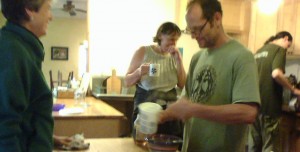 Cooperation is more than “live and let live”. It is making an effort to understand another’s point of view. It is incorporating another’s perspective with your own so that a new perspective emerges. It is suspending disbelief, even if only temporarily, so you can see the gem of truth in ideas other than your own. It is a process of creativity, synthesis, and open-mindedness which leads to trust-building, better communication and understanding, and ultimately, a stronger, healthier, more successful group.
Cooperation is more than “live and let live”. It is making an effort to understand another’s point of view. It is incorporating another’s perspective with your own so that a new perspective emerges. It is suspending disbelief, even if only temporarily, so you can see the gem of truth in ideas other than your own. It is a process of creativity, synthesis, and open-mindedness which leads to trust-building, better communication and understanding, and ultimately, a stronger, healthier, more successful group.
The next step is the development of an organization which is non-hierarchical or egalitarian. A corresponding structure would include: participatory democracy, routine universal skill-building and information sharing, rotation of leadership roles, frequent evaluations, and, perhaps most importantly, equal access to power. Hierarchical structures are not, in and of themselves, the problem. But their use concentrates power at the top and, invariably, the top becomes less and less accessible to the people at the bottom, who are usually most affected by the decisions made by those at the top. Within groups (and within society itself), there becomes a power elite. In an egalitarian structure, everyone has access to power and every position of power is accountable to everyone. This does not mean that there are no leaders. But the leaders actively share skills and information. They recognize that leadership is a role empowered by the entire group, not a personal characteristic. A group in which most or all of the members can fill any of the leadership roles cannot easily be dominated, internally or externally.
The last and most visible step towards revolutionary change in group process is the manner in which members of the group interact with each other. Dominating attitudes and controlling behavior would not be tolerated. People would show respect and expect to be shown respect. Everyone would be doing their personal best to help the group reach decisions which are in the best interest of the group. There would be no posturing and taking sides. Conflicts would be seen as an opportunity for growth, expanding people’s thinking, sharing new information, and developing new solutions which include everyone’s perspectives. The group would create an environment where everyone was encouraged to participate, conflict was freely expressed, and resolutions were in the best interest of everyone involved. Indubitably, this would be revolutionary.
You can contact C.T. Butler at:
Food Not Bombs Publishing
7304 Carroll Ave #136
Takoma Park, MD 20912
website: www.consensus.net
Telephone: 1-800-569-4054
Order copies of his books, On Conflict & Consensus and Consensus for Cities on the above site. His book, Food Not Bombs: How to Feed the Hungry and Build Community, is available on Amazon.com.
Please join our Hippie Chick Diaries fan page on Facebook!
Help Spread Consensus Decision-Making Through Indymedia and the World Social Forum in Dakar, Senegal
***PRESS RELEASE***PLEASE CIRCULATE***
The opportunity of a lifetime is before me. I’m writing for support of a project to train members of media cooperatives and collectives around the world in consensus decision-making and community building.
Consensus author/trainer C.T. Lawrence Butler and I have been working with organizers to structure an event leading up to 2011’s World Social Forum in Dakar, Senegal. The event is called the Indy Media Convergence, a two-week period when members of Independent Media Center, aka Indymedia or IMC, gather to create consensus-based community and learn new skills in communication, media and journalism. Afterwards, the members remain in Dakar to cover the World Social Forum, from perspectives free of corporate interests.
 Activist C.T. Lawrence Butler is co-founder of Food Not Bombs, the international network of local organizations feeding homeless and redistributing edible food that would otherwise go to waste. Local Food Not Bombs groups operate by consensus, and C.T. has led workshops in the US, Europe and Africa, showing thousands that horizontal structure is possible. He’s the author of the definitive On Conflict and Consensus, as well as Consensus for Cities and Food Not Bombs. He has been arrested over fifty times protesting war, nuclear power and exercising his right to give away food.
Activist C.T. Lawrence Butler is co-founder of Food Not Bombs, the international network of local organizations feeding homeless and redistributing edible food that would otherwise go to waste. Local Food Not Bombs groups operate by consensus, and C.T. has led workshops in the US, Europe and Africa, showing thousands that horizontal structure is possible. He’s the author of the definitive On Conflict and Consensus, as well as Consensus for Cities and Food Not Bombs. He has been arrested over fifty times protesting war, nuclear power and exercising his right to give away food.
 I, Wren Tuatha, am a writer/filmmaker/facilitator who has lived and practiced consensus decision-making at Heathcote Community for fifteen years. I’m Artist-in-Residence there, and am currently writing a book, Consensus for Kids, based on twenty-five years in alternative education and seven years designing and facilitating Heathcote’s Open Classroom. I am a facilitator/consultant to Intentional Communities, helping established and forming communities prioritize what I call “social technologies”—consensus, conflict resolution, ZEGG Forum, etc. My website, HippieChickDiaries.com, is a first person account of life in Intentional Community, or, as I like to put it, “Wren Tuatha’s complicated adventures in simple living….”
I, Wren Tuatha, am a writer/filmmaker/facilitator who has lived and practiced consensus decision-making at Heathcote Community for fifteen years. I’m Artist-in-Residence there, and am currently writing a book, Consensus for Kids, based on twenty-five years in alternative education and seven years designing and facilitating Heathcote’s Open Classroom. I am a facilitator/consultant to Intentional Communities, helping established and forming communities prioritize what I call “social technologies”—consensus, conflict resolution, ZEGG Forum, etc. My website, HippieChickDiaries.com, is a first person account of life in Intentional Community, or, as I like to put it, “Wren Tuatha’s complicated adventures in simple living….”
 IMC is a network of collectives, established in 1999 around the anti-WTO protests in Seattle. Going to Dakar, IMC will be covering the World Social Forum, a series of events in answer to the capitalist World Economic Forum. IMC organizers are committed to members learning interpersonal communication and inclusive decision-making, as well as practical media skills, such as building radios and transmitters.
IMC is a network of collectives, established in 1999 around the anti-WTO protests in Seattle. Going to Dakar, IMC will be covering the World Social Forum, a series of events in answer to the capitalist World Economic Forum. IMC organizers are committed to members learning interpersonal communication and inclusive decision-making, as well as practical media skills, such as building radios and transmitters.
To organizers, the point is really the process. “If we don’t have consensus training, then it’s just a technical workshop,” says Sphinx, a documentary filmmaker and IMC organizer from Cameroon, now living in exile in the US. Indymedia’s mission incorporates consensus principles but many of the over 200 chapters need training.
During the 2011 Convergence, over 100 Africans, as well as members from South America, the US and Europe will experience consensus, as well as Open Space Technology, and possibly ZEGG Forum, an often emotional group process in which communities and their members view and get past some blocks that may interfere with their common work. We will also facilitate cultural sensitivity work to help the diverse community come together through understanding.
Now that our organizing structure has been adopted by the group, we need funding to make the trip. We need to raise $11000 for our consensus work in Dakar.
DESCRIPTION AMOUNT
WSF reg & on ground expenses, CT & WT 1000
airfare for CT & WT 5000
CT home expenses 1500
WT home expenses 1500
100 copies of On Conflict and Consensus 1500
emergencies & miscellaneous 500
11000
I became acquainted with GEO’s Michael Johnson through several ZEGG Forum facilitator trainings at Ganas Community. And I’m excited that he and I are beginning to collaborate in helping worker-owned cooperatives continually develop their social technology skills, so that existing horizontal structures don’t have to revert to hierarchy, and so that all members can share power and be heard in decision-making. This breeds a profound sense of community, and streamlined energy to act on and realize our dreams.
IMC organizers like Sphinx want to use the consensus community at the Convergence to inspire participants to go home and create a handful of sustained, working models of consensus in Africa.
Through my site and networking, I’ve advanced my goals of putting Intentional Community on everyone’s list of “top ten ways to go green,” and helping communities, landed, work or affinity based, to realize that social technologies—the ability to make decisions that include every member’s buy-in, skills at arriving beyond conflict by listening and understanding the other, not just delivering one’s own point—are as important to a community’s success as having the greenest building idea or innovative Permaculture garden design.
An upcoming book C.T. and I are working on develops this idea. Often people tell us that they tried consensus or saw it in action somewhere and they decided that it was too slow or didn’t really work. We agree that consensus done poorly looks just like that, and it isn’t satisfying or effective. We observe that people try to apply the basic concepts of consensus but have problems if they are neglectful or unaware of what we are coming to call the body and the soul of consensus.
When I was in film school, instructors would admonish us to learn the rules first, then feel free to break them. In the same way, consensus has a specific structure, or “body,” that should be learned, not because rules are rules, but because getting them deeply will inform your choices when you go to improvise. We see well-meaning activists who are quick to shed the saddle but then don’t know how to ride the horse.
Also, horizontal structures such as consensus are true paradigm shifts, not just changing Robert’s Rules of Order for Butler’s. Over time practitioners shed old habits, assumptions and attachments and form new curiosities, learning to trust the group. But in the meantime, consensus decision-making with members who are still trying to debate or practice old styles of leadership can be hard. We think of the paradigm shift individuals and groups go through as the “soul” of consensus.
So, as you might imagine, it is hugely important to the Dakar Indy Media Convergence that the architects of the “body” be there to help community members discover the “soul” of their community’s process.
What can you or your organization contribute? We are asking for donations totaling $11,000 to fund our travel and facilitation efforts, as well as providing students with books. We plan to blog daily from the Convergence and the WSF, as connectivity allows.
If you should wish your contribution to be tax deductible, we can work through Indymedia’s finance committee, a non-profit.
Please contact Wren Tuatha, curiocoast@comcast.net, 410-458-2310 or C.T. Butler, ctbutler@together.net, 301-586-2560 for details.
Thank you so much for partnering with us in this work that can help all groups deepen the difference they’re trying to make in the world.
Wren, Heathcote Community, November 11, 2010
Hot Tub Tribe
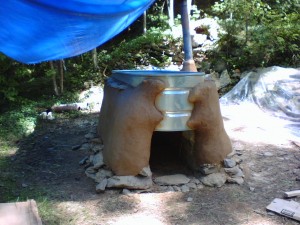 After weeks of working long hours at the fairs, I got to reconnect with my tribe in a sweet way at last night’s hot tub party!
After weeks of working long hours at the fairs, I got to reconnect with my tribe in a sweet way at last night’s hot tub party!
Our wood fired cob hot tub, with two beaver profiles sculpted at the firing end, was made as part of a workshop. Gotta love education at Heathcote! I have other workshop ideas, like How to Give Wren a Much-Deserved Massage, and Preparing and Serving All of Wren’s Favorite Comfort Foods for Maximum Consumption Before She Passes Out in Bliss… I strongly feel that education should be kept relevant.
Heathcote Community members have been engaged all weekend in a retreat lead by students in Laird Schaub and Ma’ikwe Ludwig’s two year facilitation course. We are tackling the question of how to support our education programs while also maintaining Heathcote as a relaxing, safe home for our residential members.
Our regular hot tub parties are a shiny way to pamper ourselves and deepen our shared quality of life. Last night, Paul tended the fire for several hours until the water temperature was just right. We arrived in waves and soaked five at a time, making jokes about the lobster not knowing it’s boiling alive. The kids were in and out, one teenage host served brownies, judging herself harshly on the results of her baking. Nick arrived with his guitar and the chords of The White Album started wafting up with the campfire smoke.
In the deep darkness, while the moon was still tangled in the trees, I could only see my tribe members in silhouette. I noticed that I wanted to take some photographs but I knew my cameraphone wouldn’t have done those silhouettes justice. While I was aside cooling off, I couldn’t quite hear what people were discussing. They could have been any community, at any time in history. A fire, a soak, some music, the woods, we were every tribe while we were being ourselves.
We chatted. We sweated. We hydrated. We rotated in and out of the hot tub and left in waves, as we had come.
And now, the next morning, it is time for me to return to the retreat meetings, the head space and this specific moment.
A Suitcase, my Turtle Shell…Morphing a Homebody into a Traveler
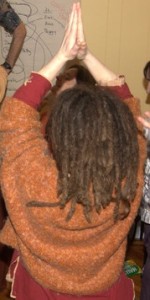 I’ve practiced my form of simple living at Heathcote Community for nearly fifteen years. Our population has hovered around a dozen adults, dipping down to eight and now climbing to sixteen adults and six kids, with several more interns on the way this year. I can tell a difference in the energy and intimacy between Heathcote at eight and Heathcote at sixteen. I wrote about our dinner cleanup becoming more hectic, and I now have more interactions with more people, thus more processing, and processing delayed more often, as we maintain busy lives. This has made me more curious than ever about larger Intentional Communities, such as Ganas in New York, which has around eighty members, or even Auroville, in India, with over two-thousand members.
I’ve practiced my form of simple living at Heathcote Community for nearly fifteen years. Our population has hovered around a dozen adults, dipping down to eight and now climbing to sixteen adults and six kids, with several more interns on the way this year. I can tell a difference in the energy and intimacy between Heathcote at eight and Heathcote at sixteen. I wrote about our dinner cleanup becoming more hectic, and I now have more interactions with more people, thus more processing, and processing delayed more often, as we maintain busy lives. This has made me more curious than ever about larger Intentional Communities, such as Ganas in New York, which has around eighty members, or even Auroville, in India, with over two-thousand members.
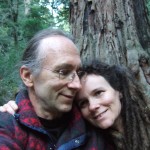 In my history with community life, I was never much of a traveler until the last couple of years. I would sometimes get down to Twin Oaks in Louisa, Virginia. And when I was searching for Community I visited Spiral Wimmin (Kentucky) and also Wygelia and Woodburn Hill Farm, both in Maryland. Typically, if I’m going to visit another Intentional Community, it’s on business, such as my trip to The Farm in Tennesee for a Gaia University organizing meeting or to Seven Sisters in Pennsylvania for the School of Living quarterly meeting. But I have never even visited most of the other Communities of the School of Living, Heathcote’s land trust organization. Since the spring meeting is held in my Community, I see my friends then. Heathcote always has wealth in our visitors from all these places and more.
In my history with community life, I was never much of a traveler until the last couple of years. I would sometimes get down to Twin Oaks in Louisa, Virginia. And when I was searching for Community I visited Spiral Wimmin (Kentucky) and also Wygelia and Woodburn Hill Farm, both in Maryland. Typically, if I’m going to visit another Intentional Community, it’s on business, such as my trip to The Farm in Tennesee for a Gaia University organizing meeting or to Seven Sisters in Pennsylvania for the School of Living quarterly meeting. But I have never even visited most of the other Communities of the School of Living, Heathcote’s land trust organization. Since the spring meeting is held in my Community, I see my friends then. Heathcote always has wealth in our visitors from all these places and more.
I have friends all over the world and I’m starting to visit them!
 I traveled with poly partner Harold to Harbin Hot Springs in California, for the World Polyamory Conference a couple of years ago. Although this was an interest community and not a landed community, I count it as part of my evolution into an Intentional Community networker and traveler. The hot springs were magical. And we did the tourist thing in San Francisco’s Chinatown and the redwood forests!
I traveled with poly partner Harold to Harbin Hot Springs in California, for the World Polyamory Conference a couple of years ago. Although this was an interest community and not a landed community, I count it as part of my evolution into an Intentional Community networker and traveler. The hot springs were magical. And we did the tourist thing in San Francisco’s Chinatown and the redwood forests!
Near the end of that California trip, my Goodwill suitcase started to disintegrate. It took quite a bit of nudging on Harold’s part to convince me to invest in a new, durable, quality piece of luggage. The moment I did, the universe must have identified me as a traveler because that suitcase and I have been going ever since! It’s taken an adjustment in my self image to make the shift to keeping a travel kit in the bag, rather than completely unpacking after a trip. New paradigm!!!
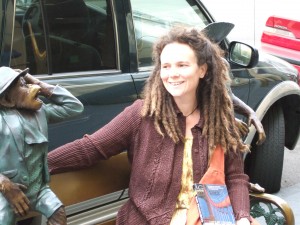 Last year my then partner, Iuval, I visited Woodfolk House, The Possibility Alliance, Red Earth Farms and Dancing Rabbit in a whirlwind tour to find a Community or land we could agree on. Too bad we didn’t get to add Sandhill and East Wind to our Missouri tour. Some day I’ll make it back, maybe in May if I can attend the new Villages in the Sky festival, a sort of temporary community akin to the Rainbow Gathering and Burning Man.
Last year my then partner, Iuval, I visited Woodfolk House, The Possibility Alliance, Red Earth Farms and Dancing Rabbit in a whirlwind tour to find a Community or land we could agree on. Too bad we didn’t get to add Sandhill and East Wind to our Missouri tour. Some day I’ll make it back, maybe in May if I can attend the new Villages in the Sky festival, a sort of temporary community akin to the Rainbow Gathering and Burning Man.
Some smaller, more off-the-map Intentional Communities I’ve visited include Baltimore’s Red Clover Collective, The Hermitage in Pennsylvania, and Heilbron Springs in Florida, where I interviewed the ever interesting Tipi Frank.
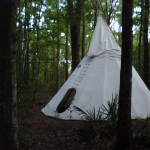 I’ll visit another School of Living Community, Julian Woods, in May. I’ll be there as part of a two-year course in meeting facilitation with Sandhill’s Laird Schaub and his partner, Ma’ikwe Ludwig, a member of Dancing Rabbit Ecovillage. (We’re looking for other communities in the mid atlantic region to host this course for a weekend. The students will provide free facilitation for your group. You can leave a comment on this post or contact Heathcote at education@heathcote.org.)
I’ll visit another School of Living Community, Julian Woods, in May. I’ll be there as part of a two-year course in meeting facilitation with Sandhill’s Laird Schaub and his partner, Ma’ikwe Ludwig, a member of Dancing Rabbit Ecovillage. (We’re looking for other communities in the mid atlantic region to host this course for a weekend. The students will provide free facilitation for your group. You can leave a comment on this post or contact Heathcote at education@heathcote.org.)
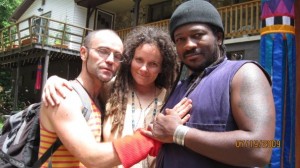 I attended a temporary Intentional Community this summer, Network for a New Culture’s Summer Camp in West Virginia. That Summer Camp holds reunions. I’ve attended two, at Reed Street in Philadelphia and Chrysalis in Arlington, Virginia, both urban Intentional Communities.
I attended a temporary Intentional Community this summer, Network for a New Culture’s Summer Camp in West Virginia. That Summer Camp holds reunions. I’ve attended two, at Reed Street in Philadelphia and Chrysalis in Arlington, Virginia, both urban Intentional Communities.
 And I visited another kind of temporary Intentional Community recently. Sweeties Jas and Erika scooped me off for a weekend at Gibson Hollow, a cooperatively owned land in Virginia, where about nineteen urban dwelling members share a getaway for weekends and holidays. It backs up to Shenandoah National Park.
And I visited another kind of temporary Intentional Community recently. Sweeties Jas and Erika scooped me off for a weekend at Gibson Hollow, a cooperatively owned land in Virginia, where about nineteen urban dwelling members share a getaway for weekends and holidays. It backs up to Shenandoah National Park.
 Now as Harold and I are furthering our skills as ZEGG-Forum facilitators, we’re planning to deepen ties in his Virginia Beach area tantra community by holding monthly ZEGG-Forums. ZEGG is an Intentional Community in Germany which has developed their forum as a tool for IC’s and other groups to get to the heart of what blocks their relationships and common work. We’ll travel to Ganas again in June and October to complete our certification as facilitators. In the meantime, I’ll start traveling to Virginia Beach once a month to co-lead a forum group with Harold. I’m liking the sight of me on the beach once a month!
Now as Harold and I are furthering our skills as ZEGG-Forum facilitators, we’re planning to deepen ties in his Virginia Beach area tantra community by holding monthly ZEGG-Forums. ZEGG is an Intentional Community in Germany which has developed their forum as a tool for IC’s and other groups to get to the heart of what blocks their relationships and common work. We’ll travel to Ganas again in June and October to complete our certification as facilitators. In the meantime, I’ll start traveling to Virginia Beach once a month to co-lead a forum group with Harold. I’m liking the sight of me on the beach once a month!
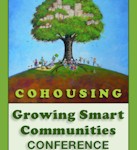 I recently visited nearby Liberty Village Cohousing, one of fourteen member groups of Mid Atlantic Cohousing, serving Pennsylvania, Maryland, DC and Virginia. I was at Liberty Village to visit C.T. Butler and attend his consensus workshop. He and sociocracy writer John Buck will be comparing C.T.’s “formal consensus” model with sociocracy in a workshop at Mid Atlantic Cohousing’s Growing Smart Communities Conference, March 20, 2010. Heathcote’s own Karen Stupski and Patty Ceglia will also be there, teaching Permaculture!
I recently visited nearby Liberty Village Cohousing, one of fourteen member groups of Mid Atlantic Cohousing, serving Pennsylvania, Maryland, DC and Virginia. I was at Liberty Village to visit C.T. Butler and attend his consensus workshop. He and sociocracy writer John Buck will be comparing C.T.’s “formal consensus” model with sociocracy in a workshop at Mid Atlantic Cohousing’s Growing Smart Communities Conference, March 20, 2010. Heathcote’s own Karen Stupski and Patty Ceglia will also be there, teaching Permaculture!
I almost squeezed another trip in there—C.T. invited me for a Long Island getaway. I’d never been there, but while I was waffling (the Ganas trip was coming up and I hate spending so much time away from hearth and hound…), we were hit with the double blizzard!
I may find myself and my suitcase in Las Vegas next month! Any poly gals out there want to marry me on the fly? A sister student in the ZEGG-Forum course is inviting me to facilitate or “weave” at her wedding there. I love her concept of weaving the two families together in her ceremony. And although the little math I know is enough that I won’t be gambling in any casinos, I would love to see the Las Vegas Strip and all the lights. Yes, I would probably post about the unsustainability of pumping all that energy into the middle of the desert, but you would nod and forgive me; I know it’s already been said, but not by this hippie chick on the spot!
I see that ic.org lists ten Intentional Communities in Nevada, all in the forming stages. They seem to have a range of diets, levels of simplicity, etc., and various unifying values. It would be shiny to visit one while I’m there!
I can tell I’ll have to expand on these many destinations in posts to come! I have sights, sounds, smells, touches and tastes from every Community I’ve visited. And the ZEGG-Forum and meeting facilitation courses will keep me on and off the road for another couple of years.
So I’m learning the tricks of traveling. I need to become a lighter packer, certainly. I’m so lucky to have Heathcoters John and Gloria in my dog co-op; they keep Tuatha well hugged and warm when I go away. My house is actually a kind of doggie day care. I have a huge area of woods fenced in behind my house so Heathcote dogs Tuatha, Rochelle and Chance can bolt around, cussing at squirrels all they want, then plow through the doggie door, tracking in all the snow, mud, leaf bits or whatever will stick to them.
Tuatha is not excited about my itinerary. Now he naps in my suitcase, on the off chance that I leave on a trip while he’s snoozing!
Home Funeral Care Workshop, March 19th-20th, 2010, Davidsonville, Md.
 From Wren: I’m already way overbooked the weekend of this event, otherwise I’d love to attend this. Heathcote Community has been discussing issues like this as our membership ages. I know of friends at Common Ground Community in Virginia who have buried loved ones in a green way on their land. I forward this information from an email in the hope this post makes it to people who can attend.—WT
From Wren: I’m already way overbooked the weekend of this event, otherwise I’d love to attend this. Heathcote Community has been discussing issues like this as our membership ages. I know of friends at Common Ground Community in Virginia who have buried loved ones in a green way on their land. I forward this information from an email in the hope this post makes it to people who can attend.—WT
Learn how to care for your departed loved ones without the services of a funeral director.
- how a home vigil can bring meaning, dignity, and healing at the time of a loved one’s passing
- legal rights and responsibilities at the time of death
- how to wash, prepare, and “lay out” the body for up to a 3-day vigil at home
- how to work with a funeral director to get only the services you need
- how to transport the body to a gravesite or crematorium
- “green” burial options
- integrating home funeral care with your religious or spiritual beliefs
This workshop will be taught by Elizabeth Knox, founder of Crossings: Caring for Our Own at Death, a home funeral and green burial resource center in Washington, D.C.
Crossings is dedicated to renewing simplicity and sanctity to death care, and teaching those who wish to know, that home funeral care is completely legal and neither dangerous nor difficult. Death is inevitable and, like birth, is a passage to be honored. There is a movement nationwide to support people in coming to terms with the death of a loved one and finding meaningful ways to honor the person and the community. In many ways, it is a return to an age-old tradition when death care was a family and community event.
TIME/LOCATION:
March 19th – 7pm – 9pm
March 20th – full day, 8:45am – 5pm
Where: 420 Dodon Rd. Davidsonville, Maryland 21035
WORKSHOP FEE:
$150, or $100 for students –
$75 deposit payable to “Crossings” due at time of registration
Cost includes workshop, Crossings resource guide, lunch, and snacks
CONTACT TO REGISTER:
Romey Pittman, romeypittman@verizon.net or 410-798-6759
FOR MORE INFORMATION:
www.crossings.net
